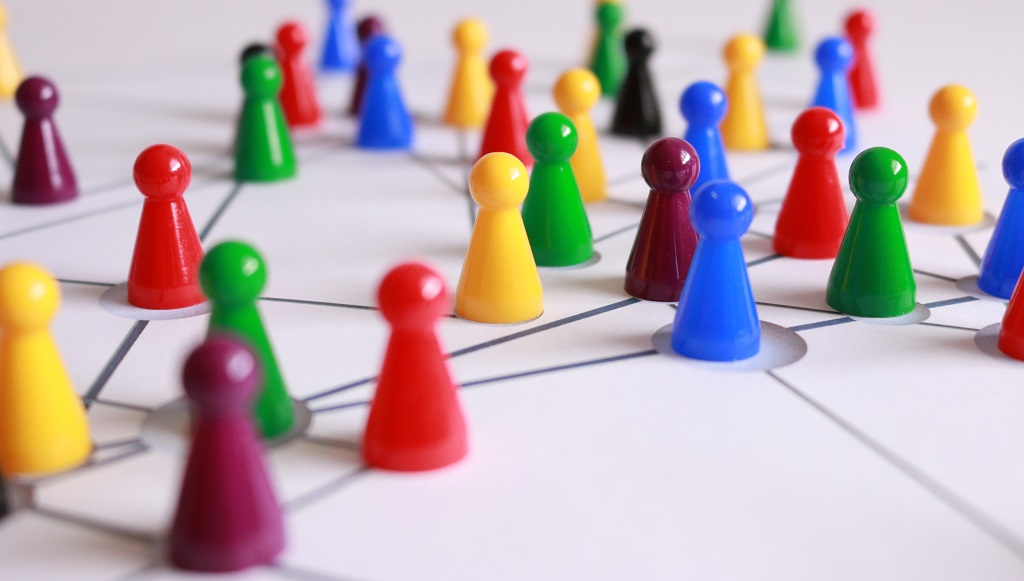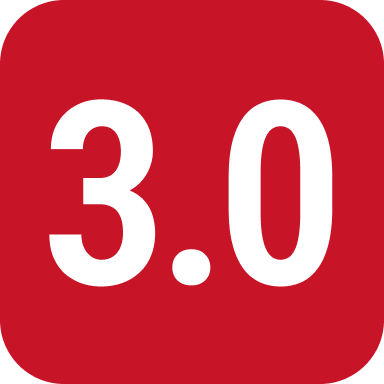Teamwork skills are a crucial element in today’s work environment that employers highly value. Struggling to understand what makes effective teamwork tick and why it’s so important?
In this article, we’ll explore the definition of teamwork skills, provide some tangible examples, and offer insights on highlighting them on your resume.
By the end of this article, you’ll have a comprehensive understanding of teamwork skills and how to leverage them to stand out in your job applications.

What Are Teamwork Skills?
Teamwork skills are skills that enable individuals to work effectively and efficiently in a group setting. It involves communication, problem-solving, and decision-making abilities, as well as emotional intelligence that facilitates interpersonal relationships within the team.
These skills aid in completing tasks faster than individuals working alone by utilizing the unique strengths of each team member and fostering a collaborative work environment.
In a team setting, each member’s contribution is valuable and critical to achieving the collective objectives. Therefore, teamwork skills also encompass acknowledging and respecting diverse thoughts, ideas, and perspectives.
Recognizing and appreciating each team member’s unique capabilities and inputs encourages inclusivity and boosts morale, enhancing productivity.
In the professional sphere, teamwork skills are of paramount importance. Employers often prefer candidates adept at working in teams, which signifies their capability to collaborate, adapt, and contribute to a shared vision.
Highlighting teamwork skills on a resume can significantly increase one’s chances of landing a job, demonstrating the potential to thrive in a team-driven work environment and contribute positively to the organization’s goals.
Types of Teamwork Skills
Teamwork skills can be broadly categorized into communication, problem-solving, and emotional intelligence.
Communication skills form the backbone of effective teamwork. They include active listening, clarity, and conciseness, providing and receiving feedback, and respectful conversation. Active listening involves paying full attention to the speaker and showing empathy toward their viewpoint, which fosters trust and respect within the team.
Clarity and conciseness ensure the accurate conveyance of ideas, eliminating potential misunderstandings. The ability to tactfully provide and receive feedback promotes a learning culture and continuous improvement in the team.
Problem-solving skills are equally important in teamwork. These encompass critical thinking, decision-making, creativity, and adaptability. Critical thinking involves analyzing the situation, identifying potential challenges, and proposing practical solutions.
Decision-making capabilities ensure that the team can swiftly and unanimously agree on a course of action. Creativity promotes innovation, enabling the team to devise unique solutions to problems.
Adaptability, conversely, ensures that the team can adjust its strategies according to changes in circumstances or objectives.
Emotional intelligence is pivotal to harmony within a team. This skill set includes empathy, handling disagreements, and recognizing one’s and others’ emotions. Empathy involves understanding and respecting the feelings and perspectives of other team members, fostering better interpersonal relations.
The ability to handle disagreements constructively helps maintain a positive team environment despite differences in opinion. Recognizing one’s own and others’ emotions enables the individual to manage their reactions better and understand the impact of their actions on the team dynamics.
Teamwork skills are of paramount importance in any workplace or collaborative environment. They facilitate the efficient and effective execution of tasks, fostering a harmonious and productive atmosphere.
When team members possess strong teamwork skills, they can more readily pool their strengths, knowledge, and expertise to work towards common goals. This synergy often leads to superior results than if each individual were working in isolation.
Furthermore, teamwork skills aid in creating a supportive environment where each member feels valued, increasing job satisfaction and employee morale.
They also contribute to personal growth as individuals learn to appreciate diverse perspectives, enhance their communication abilities, and develop resilience in facing challenges.
In today’s increasingly interconnected and globalized world, teamwork skills are essential for cross-cultural understanding, collaboration, and success.
How To Identify Your Teamwork Skills and Strengths?
Identifying your teamwork skills and strengths begins with self-reflection. Consider your experiences working in teams, whether in a professional setting, during academic projects, or in extracurricular activities.
Reflect on your role within these groups and the dynamics that ensued. Were you often leading and making decisions, or were you better at supporting others and following through with tasks?

Did you excel at conflict resolution, or were you more comfortable brainstorming and generating ideas? Remember, all roles are vital in a well-functioning team.
Once you have a general sense of your role within a team, delve deeper into specific instances of teamwork. Identify situations where your action or input contributed to a successful outcome. Ask yourself, what specific steps did you take? What skills did you demonstrate?
These could range from clear communication, ability to compromise, adaptability to different roles, or even emotional intelligence in handling team dynamics.
Here are a few more considerations to further refine your understanding of your teamwork strengths.
Test like HIGH5Test
The HIGH5test is a free strengths discovery test that comprehensively examines your top five strengths. Unlike other personality tests, the HIGH5 is focused on what you are naturally good at and provides a detailed description of who you are in terms of your greatest strengths.
It’s a great tool to understand your teamwork skills better, as it can highlight areas where you naturally excel.
Feedback from friends and colleagues
Feedback from friends and colleagues is another effective way to gauge your team-related strengths. While self-assessment can provide valuable insight, external perspectives can reveal aspects of your performance that you may not have noticed or considered.
Friends and colleagues who have witnessed your team interactions firsthand can offer specific examples of when and how you’ve demonstrated your strengths. They can also help identify any areas of improvement.
Remember, when seeking feedback, ask for it constructively. Encourage them to be honest and specific in their feedback which will help you better understand your teamwork skills.
It’s essential to be open-minded and receptive to their opinions, as this feedback can be invaluable in your journey of self-improvement.
Being self-aware
Self-awareness of your strengths and weaknesses is crucial to personal development and can significantly boost your teamwork skills. This knowledge allows you to maximize your potential and hone areas where you excel while working on areas that need improvement.
For instance, if you’re aware that you’re excellent in analytical thinking, you can take up roles that require problem-solving and strategic planning within a team.
However, if you recognize that you’re not particularly strong in conflict resolution, you can take steps to improve this skill, such as seeking training or mentoring in this area.
Remember, self-awareness isn’t about being overly critical of yourself; it’s about understanding your unique skill set and how you can best contribute to a team’s success.
How to Improve Your Teamwork Skills
Building upon your teamwork skills starts with effective communication. Clear and concise communication aids in preventing misunderstandings and fosters a harmonious working environment. Engage in active listening when team members are sharing ideas or feedback.
This approach helps comprehend the transmitted information and makes the speaker feel heard and appreciated. Communicating your ideas effectively and respectfully can enhance your teamwork skills and relationships with colleagues.
Next, another essential aspect to consider in improving your teamwork skills is adaptability. Adjusting to changing circumstances and new ideas is necessary for smooth team functioning.
This could mean adjusting to a new role within your team, being open to a shift in project direction, or adopting a new tool or technology. Developing flexibility and resilience in the face of change can make you a valuable asset to any team.
Emphasizing shared goals is also pivotal. A shared sense of purpose aligns the team, ensuring everyone works towards the same end goal. By keeping the team’s objectives at the forefront, individual tasks and responsibilities gain more meaning and importance.
Furthermore, having shared goals can foster a sense of camaraderie and mutual support among team members, as everyone is invested in achieving the same outcome. This focus strengthens the team’s unity, enhancing overall team performance.
Team Roles: Where Do Your Teamwork Skills Shine?
Social skills are pivotal in a team setting, as they facilitate open communication and foster a positive atmosphere. Strong social skills can lead to better conflict resolution, problem-solving, and collaboration among team members.

Individuals with excellent social skills are often adept at understanding and responding to the emotions of their colleagues, making them excellent mediators and collaborators. They may be natural leaders, able to motivate their team and keep morale high even in stressful situations.
Thinking skills are vital for team success, involving analyzing situations, devising strategies, and making informed decisions. These skills are instrumental in problem-solving and decision-making, where critical and creative thinking can lead to innovative solutions.
Team members with solid thinking skills can take a step back, view the bigger picture, and approach problems with an open and analytical mind. They can dissect complex issues and guide their team through challenging scenarios.
Action skills are the ability to translate thoughts and decisions into tangible actions. They involve taking initiative, being responsible, and following through on tasks. Action-oriented team members help drive a team forward and keep it on track to achieve its objectives.
They are the driving force that ensures tasks are executed, and goals are reached. These individuals are often seen as reliable, as they consistently deliver results and help maintain the team’s momentum toward achieving its goals.
Teamwork skills are a crucial arsenal for anyone in a collaborative environment. These skills encompass many abilities, including effective communication, empathy, reliability, and adaptability. Effective communication hinges on accurately expressing thoughts and ideas and understanding and acknowledging those others convey.
Empathy, on the other hand, is about appreciating and respecting team members’ perspectives and emotions. Reliability pertains to one’s ability to meet commitments and responsibilities, fostering trust within the team.
Lastly, adaptability is the capacity to adjust and thrive amidst change and uncertainty, a critical trait in today’s fast-paced world.
To make these skills shine, one needs to be proactive and intentional. Regularly engage in open and honest communication, ensuring everyone is on the same page. Practice active listening, showing genuine interest and understanding of others’ input.
Be consistent in fulfilling responsibilities, and step up when necessary, leading your team so that you are dependable.
Embrace change and demonstrate flexibility in the face of new challenges or strategies. By doing so, you not only improve your effectiveness but also contribute significantly to the team’s overall success.
What are Teamwork Strengths?
Teamwork strengths are imperative as they foster improved efficiency and productivity. In a well-functioning team, tasks are shared and divided among members according to their skills and abilities, leading to quicker and more efficient attainment of goals.
For instance, a team member’s strength in problem-solving might complement another’s strength in strategic planning. Combining these strengths can result in a more comprehensive approach to tasks, making the team more significant than the sum of its parts.
Teamwork strengths also promote a positive and enriching work environment. When team members recognize and appreciate each other’s unique skills and contributions, it fuels mutual respect and boosts morale.
This collaborative atmosphere fosters innovation as team members feel more comfortable sharing ideas and taking risks. As a result, teams may discover novel solutions and creative approaches to meeting their objectives.
Teamwork strengths contribute to personal growth and development. As team members capitalize on their strengths and improve weaknesses in a supportive environment, they enhance their professional capabilities.
They gain new skills, insights, and experiences that can be beneficial in their future roles. Therefore, teamwork is not only helpful for the organization but also for the individual’s career trajectory.
Bonus Tip: How to Highlight Teamwork Skills on a Resume
To effectively highlight teamwork skills on your resume, start by identifying the most valuable and relevant teamwork competencies you possess. Review job descriptions to understand the teamwork skills potential employers are seeking.
Common teamwork skills include collaboration, communication, conflict resolution, problem-solving, and adaptability. Make sure to select skills that you genuinely possess and can demonstrate with concrete examples.
Incorporating these skills into your resume is crucial, but they must be presented to capture the employer’s attention. Integrate them into your job descriptions rather than listing them in a separate skills section.
Describe situations where you’ve applied these skills and the positive outcomes. For example, instead of simply stating that you possess excellent communication skills, you could mention a project where clear and concise communication facilitated efficient task completion within the team. Such practical examples provide tangible evidence of your teamwork skills.
Remember that your resume is the first step in demonstrating your teamwork skills to potential employers. You’ll have ample opportunity to showcase your abilities throughout the hiring process, from the interview to likely group exercises.
Ensure that your actions align with your words, as consistency is vital in proving you’re a genuine team player. Your resume gets your foot in the door, and your behavior during the hiring process confirms your claims.
To illustrate this strategy, consider the following examples.
If you are emphasizing your ability to collaborate, you could describe your experience in a team project where you worked with a diverse group of colleagues to develop a new marketing strategy, ultimately resulting in a 20% increase in sales for the quarter.
For demonstrating communication skills, you might share an example from a previous role where you were tasked with explaining complex technical information to non-technical members of your team.
Your ability to simplify and convey this information ensured all team members were on the same page, leading to the project’s successful completion ahead of schedule.
Regarding conflict resolution and problem-solving, an instance where you mediated a dispute between team members over project responsibilities could be applicable.
You might detail how you facilitated a meeting to discuss the issue openly, encouraged compromise, and arrived at an agreeable solution for all parties.
Finally, an example of adaptability could be when a project’s specifications changed mid-way, and you quickly adjusted your strategies and actions to accommodate these changes, ensuring the project stayed on track for its deadline.
Frequently Asked Questions
Why is teamwork an important skill?
Teamwork is crucial in any environment because it enables individuals to work together efficiently and achieve common goals.
Effective collaboration fosters creativity and diversity of thought in a professional setting and improves problem-solving capabilities. It also promotes a culture of learning and mutual respect among team members.
Is good teamwork a skill?
Yes, good teamwork is indeed a skill. It involves a set of abilities such as effective communication, conflict resolution, and the capacity to collaborate and compromise.
These skills enable individuals to work cohesively within a team, contributing to the group’s overall success.
What are the six teamwork skills?
The six critical teamwork skills are communication, conflict resolution, adaptability, reliability, leadership, and decision-making.
Each of these contributes to the effective functioning of a team, fostering a productive and harmonious work environment.
What are the qualities of good teamwork?
Good teamwork is characterized by clear communication, mutual respect, and a willingness to collaborate. It involves trust among team members, shared responsibility, and a common goal that unites the group. Further, resolving conflicts amicably and quickly is a crucial quality of effective teamwork.
How do I say I have good teamwork skills?
When expressing that you possess good teamwork skills, providing specific examples from your past experiences is beneficial.
You can describe situations where you collaborated effectively with others, resolved conflicts, or contributed significantly to achieving a team’s goal. This affirms your claim and provides insight into your approach to teamwork.
Conclusion
In this above, we’ve learned that teamwork skills are vital in any work setting. These skills, which include communication, conflict resolution, adaptability, reliability, leadership, and decision-making, contribute to a harmonious and productive work environment.
They foster mutual respect, trust, and collaboration among team members, enhancing overall group success.
